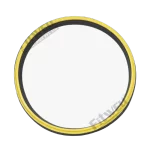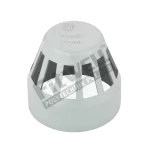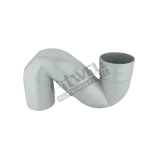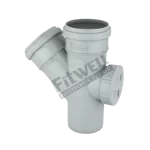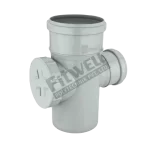Why SWR Pipes Are the Ideal Choice for Modern Plumbing Systems
Why Use SWR Pipes Instead of Agriculture Pipes?
When it comes to effective plumbing systems, the choice of pipes plays a significant role. While agriculture pipes are designed for irrigation and general water transport, SWR (Soil, Waste, and Rain) pipes are specifically engineered for waste management and rainwater systems. The distinct features and advantages of SWR pipes make them far more suitable for these specialized applications.
How Do SWR Pipes Perform Better in Managing Waste and Rainwater?
SWR pipes are purpose-built to handle a combination of soil waste, liquid waste, and rainwater. Their smooth inner surface ensures that waste flows without blockages, while their leak-proof joints prevent contamination. The pipes are resistant to corrosion, chemical reactions, and bacterial growth, making them ideal for hygienic waste disposal and rainwater management.
What Are SWR Pipes?
SWR pipes are specialized piping systems designed to manage the flow of soil waste, liquid waste, and rainwater. These pipes are a critical component of modern plumbing systems in residential, commercial, and industrial applications.
What Distinguishes SWR Pipes From Other Types of Pipes?
SWR pipes are distinguished by their unique design and material composition. They are made from high-quality plastic materials like unplasticized polyvinyl chloride (uPVC) or polypropylene (PP), ensuring durability and chemical resistance. Additionally, SWR pipes come with rubber-sealed joints, ensuring a leak-proof connection and reducing the risk of contamination.
What Materials Are Used to Manufacture SWR Pipes?
SWR pipes are primarily manufactured using durable materials such as uPVC, which is known for its strength and resistance to environmental stress. Some SWR pipes also use high-density polyethylene (HDPE) or polypropylene (PP).
How Do the Materials Used in SWR Pipes Improve Their Durability and Functionality?
The materials used in SWR pipes are specifically chosen to ensure long-lasting performance. uPVC provides excellent resistance to corrosion, chemicals, and UV rays, making these pipes suitable for outdoor and underground applications. The flexibility of materials like HDPE allows the pipes to withstand environmental stress without cracking.
How Are SWR Pipes Different From Traditional Drainage Pipes?
Traditional drainage pipes often lack the advanced features and material strength found in SWR pipes. While traditional pipes may suffice for basic drainage, SWR pipes are designed for the specific challenges of waste and rainwater management.
What Design Improvements Do SWR Pipes Have Over Traditional Drainage Pipes?
SWR pipes feature a smooth inner surface that reduces friction and prevents clogs. Their rubber-sealed joints create a watertight connection, reducing the risk of leaks and seepage. Additionally, SWR pipes are lightweight and easy to install, making them a more convenient choice for modern plumbing systems.
What Is a SWR Pipe?
SWR pipes are versatile, high-performance pipes used for waste and rainwater systems. Their ability to handle both solid and liquid waste makes them a key component of plumbing systems.
How Do SWR Pipes Handle Varying Flow Rates of Waste and Rainwater?
SWR pipes are engineered to accommodate different flow rates, ensuring that both heavy rainwater and dense waste materials can pass through efficiently. Their robust structure and smooth interior minimize turbulence, enhancing flow capacity.
Why Are SWR Pipes Considered Ideal for Handling Both Solid and Liquid Waste?
SWR pipes are designed to manage mixed waste streams, making them ideal for urban and industrial settings.
What Features Enable SWR Pipes to Handle Mixed Waste Effectively?
The pipes’ robust construction, smooth inner surface, and corrosion resistance allow them to handle solid and liquid waste without blockages or degradation. Additionally, their leak-proof design ensures environmental safety.
How Does the Design of SWR Pipes Improve Drainage Efficiency?
Efficient drainage systems rely on pipes that can handle large volumes of waste and water without clogging.
How Do SWR Pipes Prevent Blockages and Enhance Waste Flow?
The smooth interior of SWR pipes reduces friction, preventing debris from accumulating. Their wide diameter and precision-engineered joints ensure seamless flow, even under high-pressure conditions.
What Is the Difference Between SWR and PVC Pipes?
Although both SWR and PVC pipes are made from plastic, they serve different purposes and have distinct properties.
How Does the Chemical Resistance of SWR Pipes Compare to PVC Pipes?
SWR pipes are designed to resist chemical corrosion from waste materials, making them more durable in plumbing applications. PVC pipes, while durable, are better suited for irrigation and general water transport.
How Does the Structural Strength of SWR Pipes Compare to PVC Pipes?
SWR pipes are engineered for durability under high-pressure and high-stress conditions.
Why Are SWR Pipes Preferred for Heavy-Duty Drainage Systems?
The reinforced structure of SWR pipes allows them to handle large volumes of waste and rainwater without cracking or leaking. This makes them ideal for industrial and multi-story building applications.
Where Are SWR Pipes Used?
SWR pipes are versatile and used in various settings, including residential, commercial, and industrial spaces.
How Are SWR Pipes Utilized in Both Residential and Commercial Projects?
In residential buildings, SWR pipes are used for drainage and rainwater management. In commercial and industrial projects, they are essential for large-scale waste disposal and stormwater systems.
Why Are SWR Pipes Essential for Urban Plumbing Systems?
Urban plumbing systems require efficient waste and rainwater management to prevent pollution and flooding.
How Do SWR Pipes Address the Challenges of Urban Waste Management?
SWR pipes efficiently handle high waste volumes and rainwater, preventing blockages and leaks in densely populated areas. Their durability ensures long-term performance in urban environments.
How Do SWR Pipes Contribute to Efficient Rainwater Management?
Proper rainwater management reduces the risk of waterlogging and flooding in urban and rural areas.
What Role Do SWR Pipes Play in Preventing Waterlogging and Flooding?
SWR pipes efficiently channel rainwater away from buildings and streets, ensuring proper drainage during heavy rains. Their high flow capacity makes them ideal for stormwater systems.
What Is the Full Form of SWR?
SWR stands for Soil, Waste, and Rain, reflecting its primary applications.
Why Is “Soil, Waste, and Rain” a Comprehensive Description of SWR Pipes?
The term highlights the versatility of SWR pipes, as they are designed to handle soil waste, liquid waste, and rainwater simultaneously.
What Does "Soil, Waste, and Rain" Signify in Plumbing Systems?
The name SWR encapsulates the pipes’ ability to manage diverse waste streams efficiently.
How Does the Term “Soil, Waste, and Rain” Reflect the Versatility of SWR Pipes?
It emphasizes that SWR pipes are multipurpose solutions for modern plumbing, capable of handling various waste types.
What Is the Use of SWR?
SWR pipes play a crucial role in ensuring clean and efficient waste disposal.
Why Are SWR Pipes a Preferred Choice for Modern Plumbing Systems?
Their leak-proof design, chemical resistance, and high flow capacity make SWR pipes indispensable for modern plumbing.
What Is the Use of SWR?How Do SWR Pipes Ensure Proper Waste Disposal in Residential Buildings?
Residential waste systems require reliable pipes to prevent contamination and maintain hygiene.
How Do SWR Pipes Reduce Health Risks by Managing Waste Effectively?
Their sealed joints and corrosion resistance prevent leaks and blockages, ensuring waste is disposed of safely.
What Role Do SWR Pipes Play in Controlling Stormwater Runoff?
Effective stormwater management is essential for preventing urban flooding.
How Do SWR Pipes Help in Rainwater Harvesting and Stormwater Redirection?
SWR pipes efficiently channel stormwater to designated drainage systems or rainwater harvesting setups, minimizing waterlogging.
Manufacturing Process of CPVC Piping Systems
Conclusion
SWR pipes are the backbone of modern plumbing systems, offering unmatched efficiency and reliability for waste and rainwater management. Their durable design, leak-proof joints, and resistance to chemicals make them a versatile solution for residential, commercial, and industrial applications. Whether it’s controlling stormwater or managing urban waste, SWR pipes deliver the performance needed for sustainable and hygienic living.
Frequently asked questions
Here are answers to some frequently asked questions about Fitwell's plumbing services.
SWR pipes are typically made from uPVC or polypropylene, ensuring durability and resistance to corrosion.
Yes, SWR pipes are designed to handle both solid and liquid waste efficiently.
Absolutely. SWR pipes are ideal for channeling rainwater to harvesting systems or drainage.
With proper installation and maintenance, SWR pipes can last over 50 years.
Yes, SWR pipes use rubber-sealed joints for a leak-proof and secure connection.
Stay on the forefront of industry trends by checking out our latest content
Stay ahead with our latest content, designed to keep you informed on the newest industry trends and insights. Discover valuable updates that help you lead in your field.

How to Pick the Best PVC Bathroom Faucet for Your Home
How to Pick the Best PVC Bathroom Faucet for Your Home Why is choosing the right bathroom faucet important? Selecting the right faucet is about more than just aesthetics; it

The Ultimate Guide to UPVC Pipes: Safe and Efficient Solutions for Water Systems
The Ultimate Guide to UPVC Pipes: Safe and Efficient Solutions for Water Systems What Factors Make CPVC Better Than UPVC for Drinking Water? UPVC pipes are highly reliable for carrying

Why CPVC Pipes are Preferred for Potable Water?
Why CPVC Pipes are Preferred for Potable Water? What Features Make CPVC Pipes Ideal for Drinking Water Systems? CPVC pipes are preferred for potable water due to their durability, chemical
Request a Free Consultation
Get personalized plumbing solutions with a free consultation from Fitwell.

